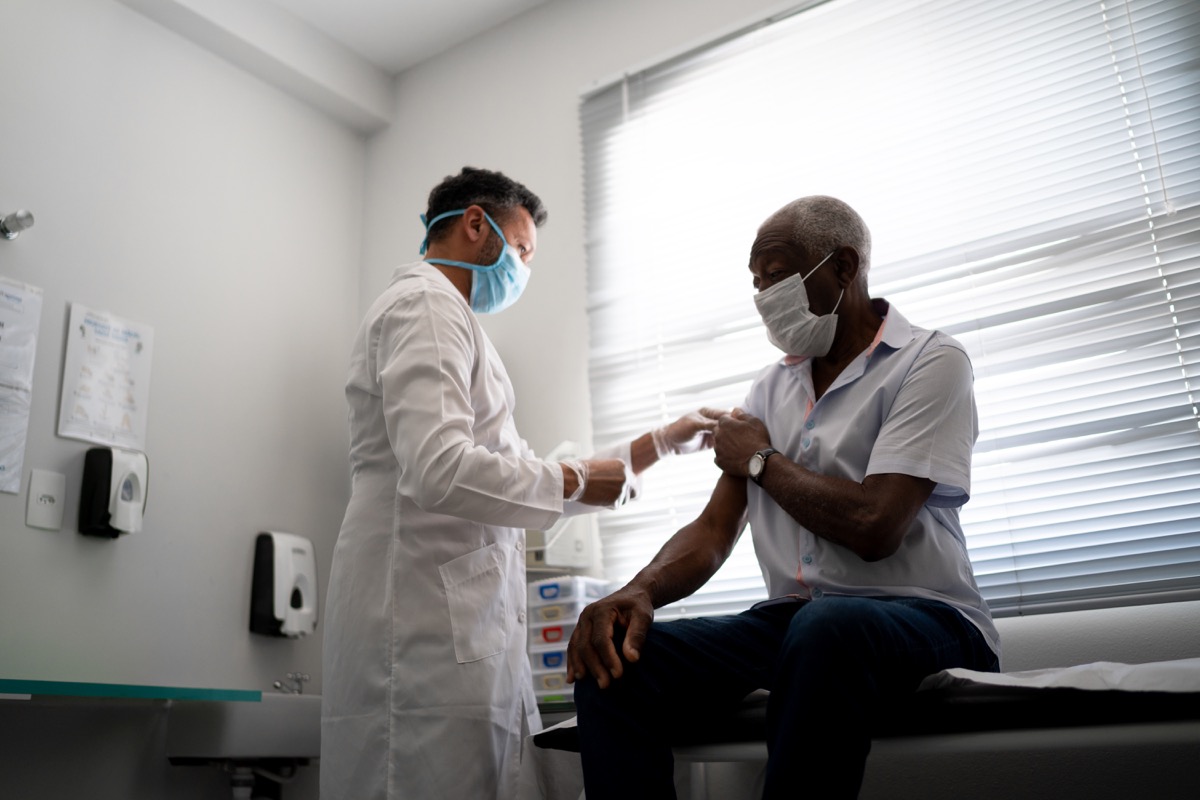The CDC updated its latest advice for patients and medical practitioners, detailing how there have been some reports of “delayed-onset local reactions” occurring “a few days through the second week after the first dose, and are sometimes quite large.” These inflammatory skin reactions occur near the injection site in the form of erythema, induration, or pruritus, the CDC notes. The agency says that while it is unknown whether these patients will experience a similar vaccine side effect from their second dose, as a precautionary measure, they “should receive the second dose using the same vaccine product as the first dose and at the recommended interval, and preferably in the opposite arm.” The CDC has also issued some other guidance on what not to do before and after your vaccination appointment. Find out more on what they advise, and for more COVID news sent right to your inbox, sign up for our daily newsletter. According to the CDC, you should not try to get all your shots when you go to get your COVID vaccine. If you’ve received any other vaccine, like the flu shot or shingles vaccine, you need to “wait at least 14 days before getting your COVID-19 vaccine.” Similarly, after you’ve gotten your coronavirus vaccine, you need to “wait at least 14 days before getting any other vaccine,” the CDC says. And for one way things could change for you post-shot, check out The CDC Says You Don’t Have to Do This Anymore Once You’re Vaccinated.ae0fcc31ae342fd3a1346ebb1f342fcb Even if you’re dreading the feeling of the doctor’s needle or worried about side effects, the CDC and other medical professionals are advising that you should stop using ibuprofen (Advil and Motrin) and acetaminophen (Tylenol) 24 to 48 hours before getting your COVID vaccine. Additionally, the health agency says to skip aspirin or antihistamines, too. “It is not recommended you take these medicines before vaccination for the purpose of trying to prevent side effects, because it is not known how these medications may impact how well the vaccine works,” the CDC cautions. While studies of their impact on the vaccine’s efficacy have so far been limited, experts at the University of California Irvine warn that “taking over-the-counter medications such as acetaminophen and ibuprofen before receiving a COVID vaccine may reduce its ability to work and blunt your immune response to the vaccine.” And for more COVID vaccine news, check out Dr. Fauci Just Said the COVID Vaccine Could Also Protect You From This. While the CDC does not have any official guidance on this topic just yet, doctors have told patients to be aware that the vaccine can cause a localized swelling of the lymph nodes. Were this to show up on a mammogram, it could be mistaken for a sign of breast cancer and would cause undue stress, The Society of Breast Imaging warns. For this reason, they’re advising that patients wait a month from their vaccine before having a breast examination. And for insight into where you might be able to get your doses, know that If You Live in These States, You Can Now Get Vaccinated at Walgreens.


